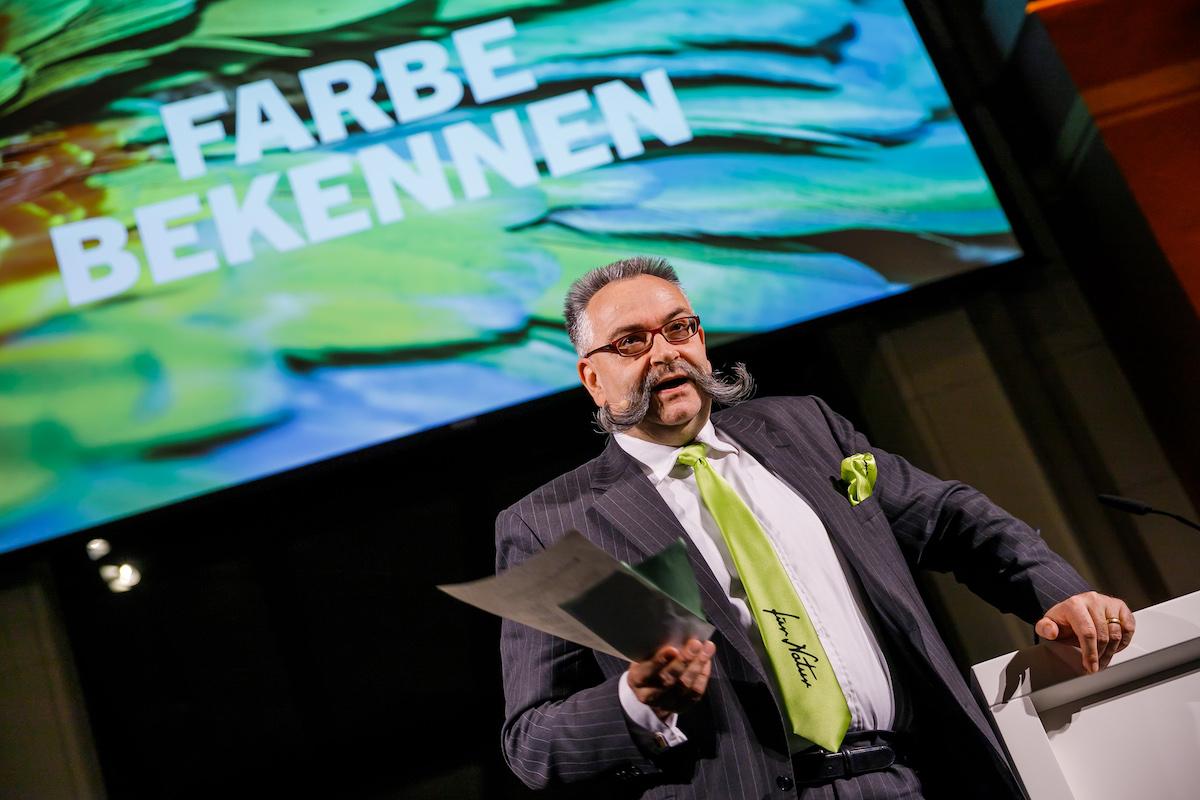A few words right up front: the world is on fire, and we need to change, because freedom and responsibility are two sides of the very same coin. Science must approach society in new and experimental ways. Our mission in science is to find a new common ground and take responsibility for our democracy. It is time to finally roll up our sleeves at all universities and institutes. One day a week for our democracy - that is the beginning of our experiment to finally start the long overdue process of change.
By Prof. Johannes Vogel, Director General of the Museum für Naturkunde Berlin
We will not be able to avoid change if we, as scientists, want to contribute to a future worth living with our knowledge. However, this will not succeed without a fundamental shift in what 'counts' in science in terms of reputation, career and salary and a rethink of the practical responsibility of science in and for democracy.
The annual science barometer reveals how urgently this change is needed: just 56 per cent of people in Germany have trust in science, but (!) people with a middle or low level of education have more doubts. According to the Science in Dialogue survey, 52 per cent of them still trust people in science – in comparison to 68 per cent a year ago! That signals change!
Fortunately, science is a discipline that learns from its mistakes. And that is exactly what we should do now. We must act now in a way that has long been demanded of us: Listen with curiosity, provide honest, understandable answers, try humbly and without prejudice (as far as you can) to identify the common interest, explore shared values or goals – with everyone who is affected, regardless of their education, ethnic background or world of thought.
It must be a new, integral part of a scientist's work to regularly exchange ideas with people of diverse origins and different social groups on site.
The goal is 20 per cent of resources and working time – training must be provided for this purpose and this commitment must be recognised in the careers of scientists! This means that for this new part of our work, we need to switch from the question "What's new?" to the question "How relevant is our research?" – we are working with other people to find ways of explaining and discussing our work and our concerns in an understandable way. We have to engage with completely different logics and recognise the knowledge of others. After all, decisions are not always based exclusively on evidence and reason. At the same time, it is also important to promote knowledge-based solutions – but not in the same way as before. We need active exchange and direct dialogue with people outside our privileged bubble. All of this can make us speechless, helpless and it can hurt – but it is the way to ensure that science does not languish in a new ivory tower.
In order to strengthen and further develop democracy and science, it is necessary to develop a new common basis between science and society and to fight for a new enlightenment. Science and politics have a responsibility to create trust. But trust also needs a value-based component. So how do we as a society want to live tomorrow? What responsibility does science bear for this?
For all these conversations, it is necessary to prepare ourselves incredibly well, it will cost us a lot of time and money, but it will also create great new opportunities for all scientific disciplines, for our research – and for a living democracy, the highest good.
